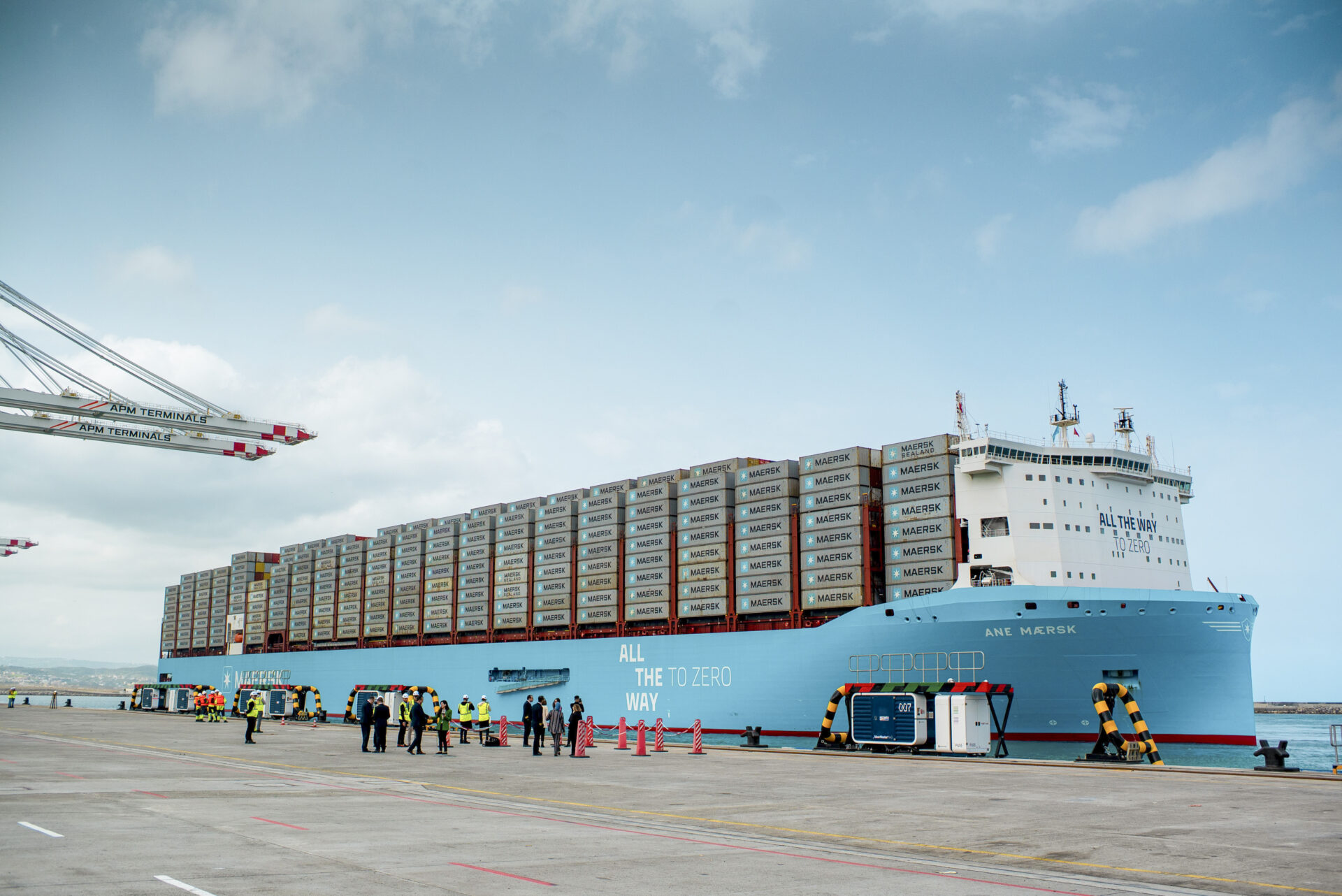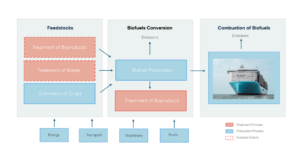
Maersk has committed to a new fleet of dual-fuel vessels capable of running on alternative fuels like methanol, but sourcing the amounts of fuel needed to power them is no easy task. To inform their fuel strategy, Maersk needed to track the environmental performance of five different biofuels to compare and benchmark their sustainability.
The production of biofuels involves the use of land, feedstocks such as waste, crops or by-products, and large amounts of energy. This means that greenhouse gas (GHG) emissions and environmental impacts can vary significantly between biofuels, depending on what the fuel is made from, how it is processed and treated, and how much land was used in the process.
To achieve the flexible decision support required by Maersk, we delivered an LCA tool modelling the cradle-to-grave impacts of five different biofuels. The tool enables Maersk to consider different production pathways, feedstock inputs and regional markets where the fuel is produced, and to benchmark the GHG and non-GHG impacts from all combinations.
The LCA tool enables Maersk to determine the environmental impacts of any specific biofuel production. Because Maersk’s demand for renewable fuels is so significant, the project also included an estimation of the scalability and availability of each biofuel feedstock. This gives Maersk the market insight needed to choose the most sustainable and economically feasible renewable fuel solution.
Overall, the project gives Maersk unprecedented transparency into the climate risks, land-use change risks, and overall environmental sustainability performance of five biofuel alternatives in real time.

